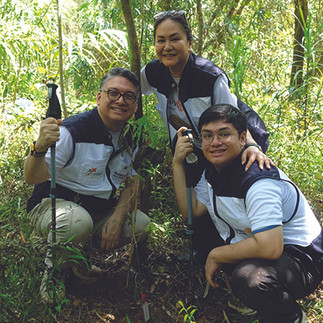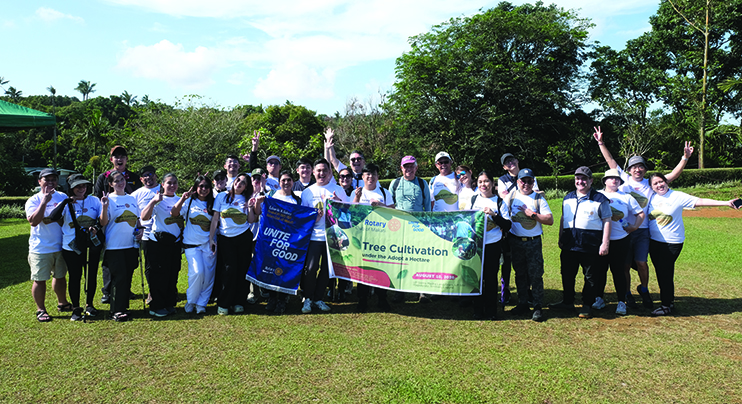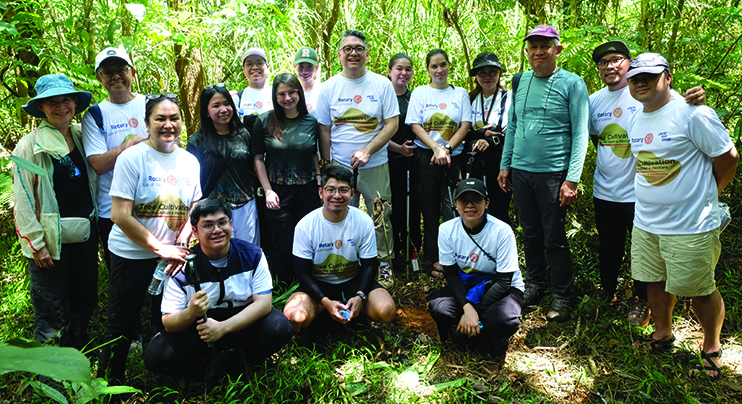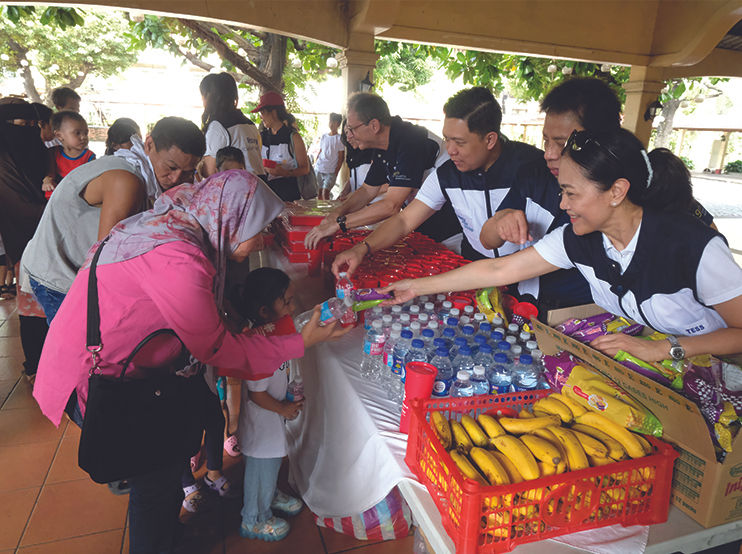Club Expands Support for Adopt-a-Hectare in Sierra Madre
- Rotary Club of Makati
- Aug 27, 2025
- 3 min read

The Sierra Madre mountain range, often called the country’s “last frontier,” is home to the largest remaining tract of old-growth tropical rainforest in the Philippines. It serves as a natural shield against typhoons and a vital source of biodiversity, water, and life. Recognizing its critical role in environmental sustainability, the Rotary Club of Makati (RC Makati) has strengthened its commitment to preserving this precious ecosystem by expanding its participation in the Adopt-a-Hectare Forest Program, a partnership with the UPLB College of Forestry and Natural Resources (CFNR).
On August 10, an RC Makati delegation led by Pres. Eddie & First Ann Trina Galvez, PN/Dir. Chris Ferareza, Dir. CB & Meg Rivilla with their son Mari, together with Rtns. Aaron Mempin and Yaron Hahami, joined volunteers and members of the Rotaract Club of Makati for a day dedicated to the environment. Representing UPLB-CFNR were Dean Marlo Mendoza and Land Grant Manager Reynaldo Lorida.

At the heart of this collaboration is the Industrial Tree Plantation (ITP) initiative, a forward-looking program that integrates ecological restoration with long-term educational benefits. Through the sustainable harvesting of indigenous trees, the project will fund scholarships, incentives for Latin Honor graduates and Forester Licensure Exam topnotchers, and hands-on training for forestry students across the value chain—from seedling to sawmill. Beyond academics, it contributes to forest landscape restoration, recovery of ecological services, and CFNR’s community extension programs. With the first harvest expected in 12 years, the program ensures sustainability by replanting every tree that is harvested.
In his welcome remarks, Dean Marlo Mendoza explained that the harvests from the land grants will fund scholarships, making the program self-sustaining. He highlighted the rich biodiversity of the land grants, which serve as research sites in partnership with global institutions such as Oxford University. Dean Marlo assured everyone that the seedlings planted would grow into real forests, not just compliance plantings, and expressed gratitude for RC Makati’s unwavering support.
Pres. Eddie Galvez, in his message, emphasized that the Tree Planting activity aligns with Rotary’s Areas of Focus—Protecting the Environment. He underscored the importance of building partnerships with experts and expressed hope that in 10 to 12 years, the Club will see the fruits of this collaboration.
Following the messages, RC Makati sealed its renewed commitment by signing a Memorandum of Agreement for four more hectares of adopted forest and turning over a donation of ₱460,000. The group then embarked on a five-kilometer trek—nearly two hours on steep, rocky, and muddy trails—to reach the planting site. Despite the challenging path, the experience of planting trees deep in the forest was both rewarding and relaxing.
Before planting, Dean Marlo gave a short orientation on proper seedling handling—emphasizing correct depth, careful handling of roots, soil compaction, planting in pairs for safety, and proper disposal of plastic materials. Along the way, he shared insights on forest growth, explaining that transforming shrubland into a forest can take decades. Planting native seedlings under existing vegetation, which serve as “nurse trees,” improves survival by shielding young plants from sunlight and conserving moisture. While growth may be slower in shaded areas, the long-term success rate is far greater than planting in open grasslands.
On this visit, RC Makati volunteers planted around 200 seedlings, with more scheduled for planting between September and February, when rainfall provides optimal conditions for growth.
RC Makati first joined the Adopt-a-Hectare initiative last Rotary year during the presidency of IPP Keith Harrison, adopting four hectares of forest. On August 10, the Club took another bold step forward by committing an additional four hectares in Sierra Madre, bringing the total to eight hectares under the UP Land Grant. With 1,500 hectares identified for proposed Industrial Tree Plantation under the 2011 Approved Master Plan, RC Makati is clearly helping the environment and supporting future foresters to sustain this program.
This initiative demonstrates how Rotary can turn environmental advocacy into measurable action. By linking forest restoration with education and livelihood opportunities, the program ensures lasting benefits for both nature and communities.




























Comments